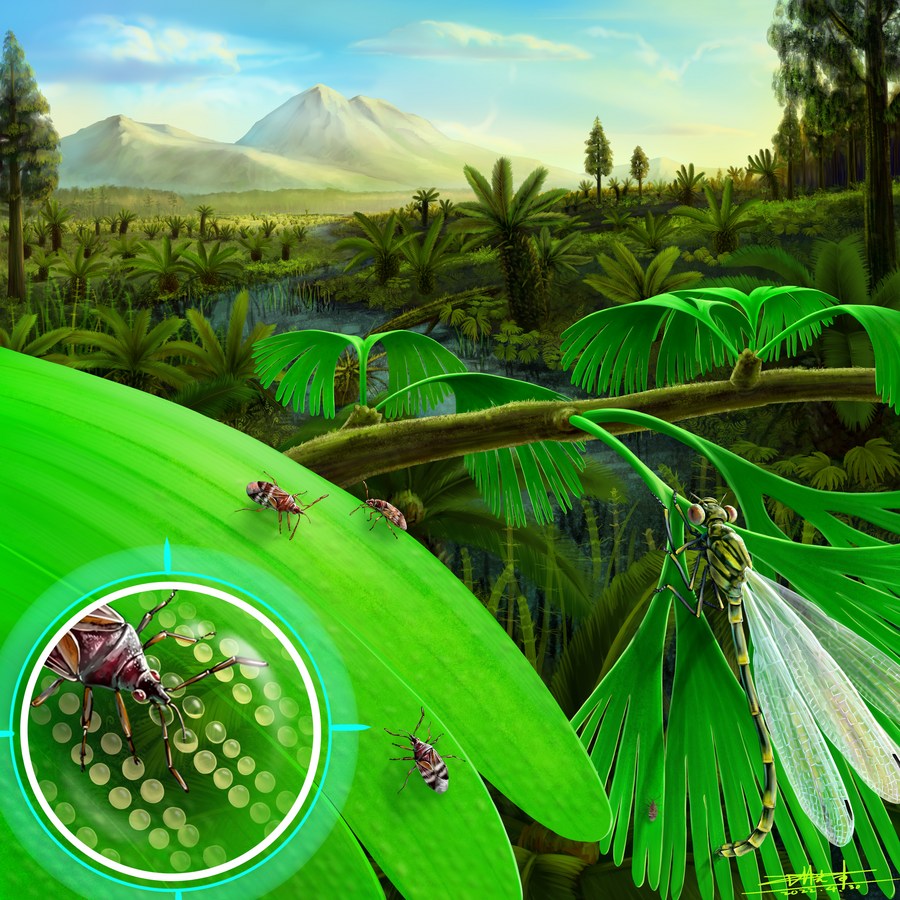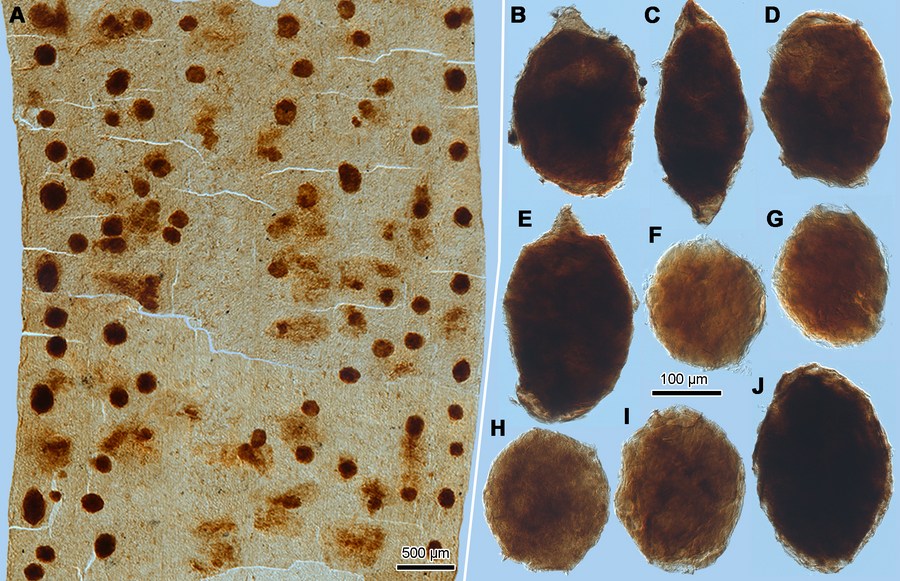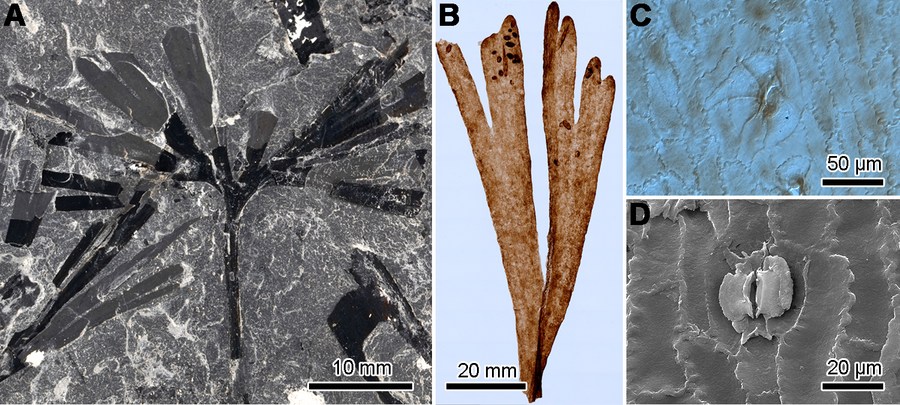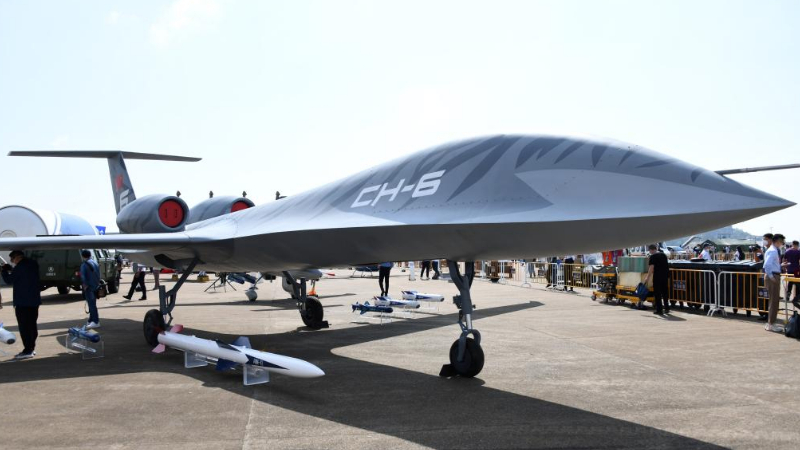
This diagram shows insect eggs laid in leaves being eaten by other insects some 200 million years ago. (Xinhua)
KUNMING, Nov. 10 (Xinhua) -- Scientists have unveiled a phenomenon from plant fossils in southwest China -- insects living some 200 million years ago laid eggs in leaves, and other insects ate these eggs. Their findings were published online in the journal Current Biology on Tuesday.
The endophytic oviposition behavior, which refers to the insertion of eggs into plant tissue, represents a sophisticated reproductive strategy of insects. This process occurs by employing a specialized egg-laying device that effectively protects eggs through plant tissue concealment.

This undated combo photo shows fossils of insect eggs under the microscope. (Photo by Feng Zhuo/Xinhua)
After long-term scientific field research, Feng Zhuo, with the Institute of Paleontology, Yunnan University, and his team members collected many well-preserved plant fossils in Zigong of Sichuan Province. From these fossils, the team found body-fossil evidence of insects having endophytic oviposition and egg predation behavior.
From the holes in the eggs, researchers discovered that the egg fluid was taken by other insects, Feng said. He added that egg fluid has nourishing content and that finding these eggs "hidden" in leaves meant those insects had a special olfactory or visual nervous system.

This undated combo photo shows plant fossils where insects laid eggs. (Photo by Feng Zhuo/Xinhua)
"Egg insertion into plant tissue and taking egg fluid are beneficial to species reproduction, and both behaviors appeared as early as 200 million years ago," Feng said. ■












